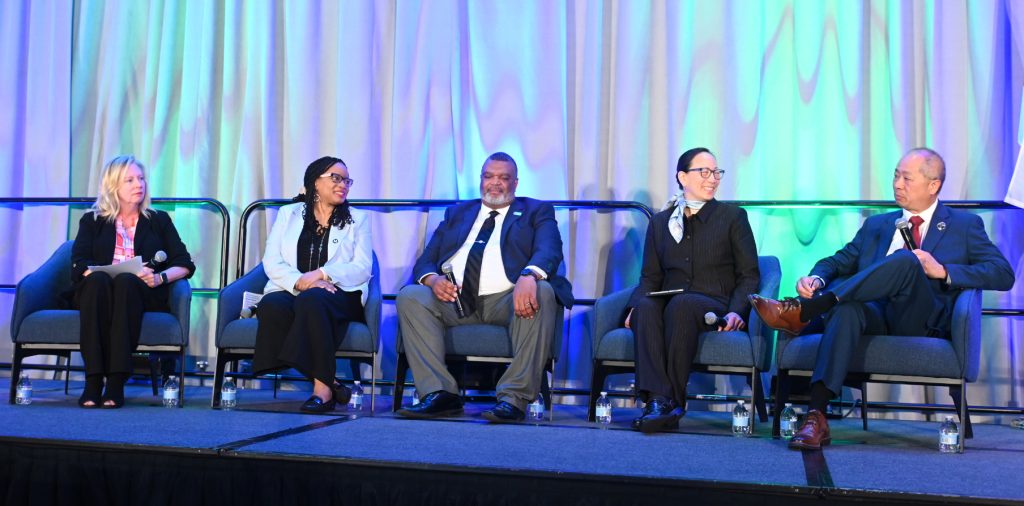Through Planning, Partnership and Federal Support, Transit Will Shine in World Spotlight
5/27/2025

Starting in June, the world’s sports fans are coming to the U.S. in the millions, and they will be relying heavily on public transportation when they get here.
An estimated 10 million people are expected at World Cup tournaments in host cities across the country, between the Club Cup this year and the World Cup in 2026. Both the 2028 Summer Olympics in Los Angeles and the 2034 Winter Olympics in Utah are projected to draw another 5-6 million each.
It’s “exhilarating” says Phillip Eng, GM and CEO of Massachusetts Bay Transportation Authority (MBTA), a panelist on the Transit on the World Stage: Moving Cities During Mega Sporting Events session at APTA’s 2025 Legislative Conference, sponsored by WSP. It’s also “an opportunity to demonstrate just how important, and how vital, public transportation is.”
How to do that, especially in view of panelists’ shared challenges of supply, infrastructure, and funding, was the question. The familiar answer was through partnerships, planning, and advocacy for much-needed support and funding.
Frank White, president of the Kansas City Area Transportation Authority (KCATA), has been planning for the World Cup since he became CEO in 2022. Recruiting partners from the region’s transit and government agencies, he formed a “de facto mobility committee” that became the event management nonprofit KC World Cup 2026. Members first met at a coffee shop, to discuss “what would a really good World Cup plan look like?” he said, and focused on the seamless, coordinated fan experience.
Los Angeles will host World Cup games next year, in what Stephanie Wiggins, CEO, Los Angeles County Metropolitan Transportation Authority (LA Metro), called “the most spectacular dry run to prepare for the ’28 Olympics.” Advance planning has been a big part of her agency’s preparations, Wiggins said, adding that federal support, ideally from the start of preparations, is crucial.
Major events in other countries were “immediately embraced at the national level,” Wiggins observed, but in the U.S., cities work alone to win hosting opportunities and have to “play catch-up afterward” to secure state and federal support. “That’s a huge challenge, and one that we collectively want to change for the future, so that people don’t have to do this each and every time.”
That support should be consistent, too, said Eng. Major events produce clear returns on investment—the World Cup games alone are projected to bring $50 billion in economic benefit to the country—but transit’s day-to-day work, “the ability to get out and about,” also provides value.
Panelists also shared planning take-aways around enlisting adequate volunteer support, wayfinding for non-English speakers, communications, and first impressions.
Nadine Lee, president & CEO, Dallas Area Rapid Transit (DART), loved the way Paris welcomed the world in 2024. “It was really like ‘we want you to feel like Paris is your home …’ and that needs to be part of our branding. That needs to be part of our national vibe, that we want people to have the best experience here in the United States that they could possibly have.”
Beth Holbrook, chair, APTA Legislative Committee, and Board Trustee, Utah Transit Authority, moderated the session. Jannet Walker-Ford, business line executive, advisory and planning, WSP, delivered sponsor remarks.